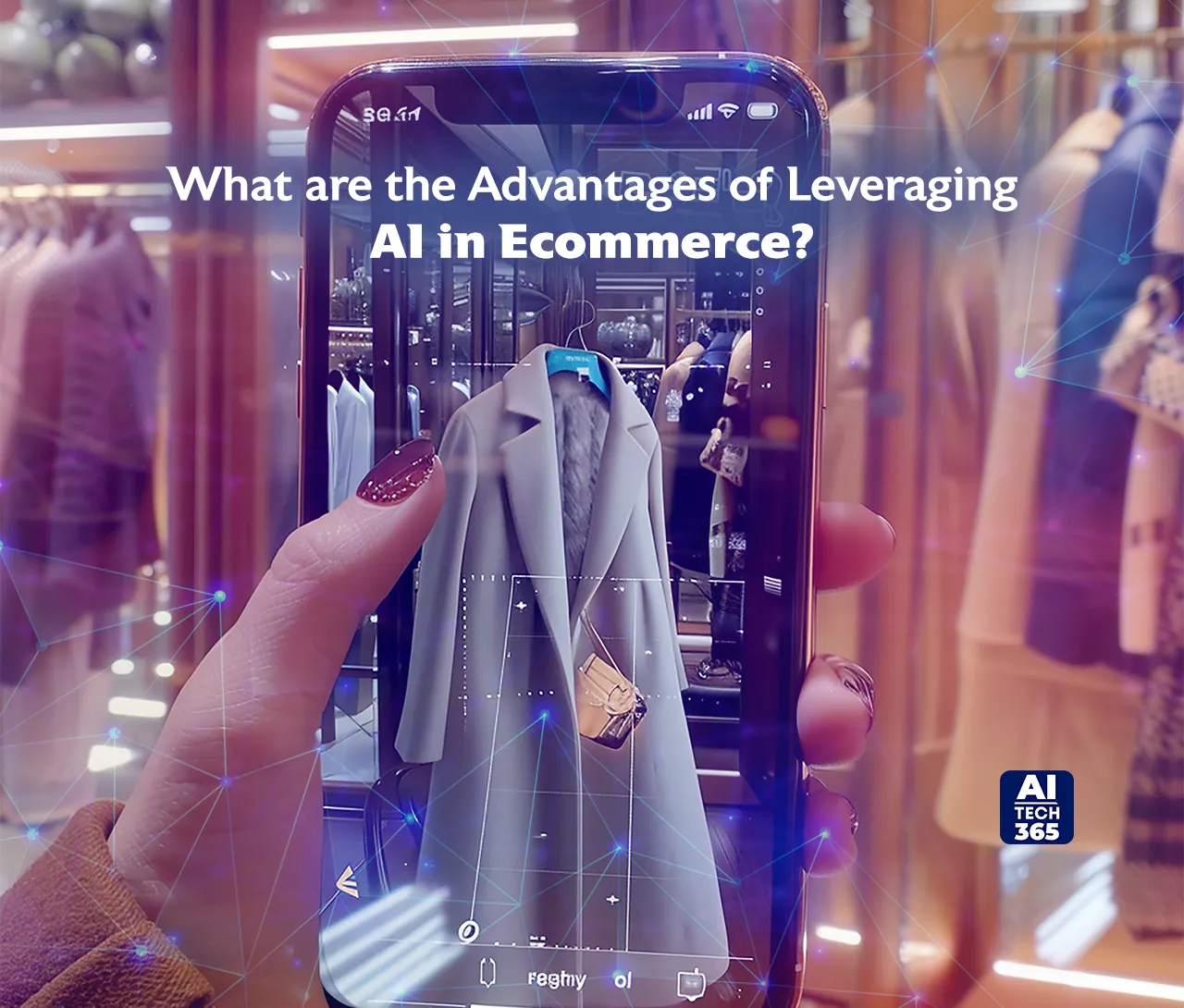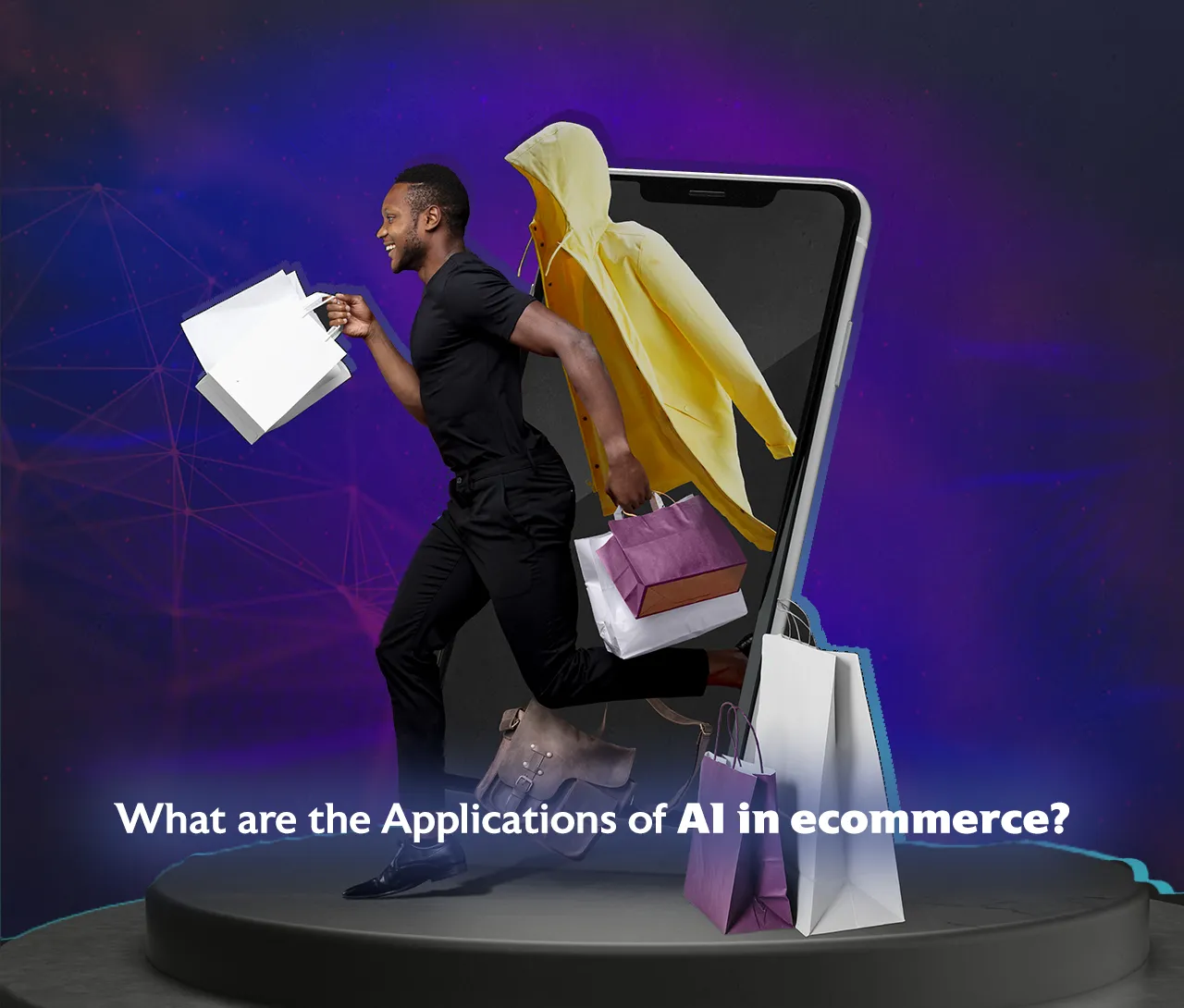B2B and B2C businesses are seeking opportunities to embrace more digital channels to increase their brand awareness and sales conversion. According to a Salesforce titled State of Commerce Report, B2B buyers are increasingly adopting digital channels to complete their purchases. The report highlights that nearly 31% of enterprise sellers state that adopting online channels offers more than half of all the revenue generated.
Despite the substantial growth in digital channels, businesses are running low on resources either because of a lack of resources or skills. In order to overcome these bottlenecks, business leaders are embracing artificial intelligence (AI) in their MarTech stack to streamline ecommerce operations. Leveraging AI in ecommerce has enabled various organizations to enhance their productivity, efficiency, and revenue growth.
In this blog, let us have an overview of AI in eCommerce business:
What are the AI Technology Types Leveraged in Ecommerce?
AI is not one single technology that businesses can leverage; it comprises multiple technologies. Following are the four types of AI technologies that eCommerce businesses use:
● Natural Language Processing (NLP)
NLP allows systems to interpret natural human language and respond to it.
● Machine Learning (ML)
ML leverages statistical approaches, such as algorithms, to allow computers to evaluate previous purchase history data and make forecasts to make data-driven decisions without being programmed. Businesses can integrate deep learning models like transformers and large language models (LLMs), including OpenAi’s ChatGPT. This layer of algorithms helps systems to understand the data effectively and efficiently.
● Computer Vision (CV)
CV is an aspect of AI that helps computers to decode data from images and videos.
● Data Mining
Organizations can embrace data mining to identify data to inform AI algorithms and systems.
What are the Advantages of Leveraging AI in Ecommerce?
Given below are a few of the benefits of integrating AI in the enterprise tech stack:
1. Hyper Personalized Marketing and Advertising Campaigns
The market landscape has become very competitive in every sector with new players coming up in the market. Hence, it has become imperative to stand apart from the crowd by offering tailor-made messages and interactions with the customers.
The advancements in AI and machine learning have allowed ecommerce companies to offer personalized shopping experiences by delivering customized content based on the user’s needs and preferences. Evaluation of customer data from purchase history and other consumer conversations, businesses can determine customer needs and preferences. It is an effective way to deliver a message that resonates with the customer.
2. Better Client Retention
Offering hyper personalized marketing and advertising messages to their clients will help in effective client retention. Gartner’s Customer Service and Support Survey highlights that approximately 86% of B2B clients demand organizations to be well-informed about their personal data during a customer service interaction. Additionally, the report also suggests that 71% of B2C clients expect the customer service teams to be aware of their personal choices during their conversations.
3. Frictionless Automation
Businesses globally, irrespective of their size, type, or industry, are integrating automation tools in their tech stack to have minimal human intervention. Even the ecommerce sector is seeking opportunities to integrate robotics and machine learning to streamline their operations.
AI powered virtual assistants can help automate repetitive tasks to keep all the digital channels smoothly functioning. By embracing generative AI and other AI applications, businesses can automate customer service, product recommendations, loyalty programs, and other tasks.
4. Efficient Revenue Operations
Integration of AI technology in ecommerce businesses allows them to have efficient and effective sales processes. Organizations can gather client data and automate the follow-up processes for customers with abandoned carts and others. AI powered ecommerce tools can help customers smoothly move in their entire customer journey.
What are the Use Cases of AI in eCommerce?
Following are a few use cases of AI technologies in the ecommerce industry:
- Monitor and evaluate customer conversations and shopping patterns to make data-driven decisions.
- Offer tailor-made shopping experiences to enhance customer experience.
- Give customized product recommendations based on the client preferences to increase the conversion rates.
- AI in ecommerce is capable of delivering upselling and cross-selling desirable items during the checkout stage. It is an effective way to increase the overall ticket size.
- AI-powered virtual assistants can deliver efficient customer service. It offers customers resolution without being placed on hold. Thereby enhancing the CX.
- AI has the potential to excel at all the above-mentioned points to optimize customer retention.
- Embedding AI technology assists in improving the conversion rate, ROI, brand awareness, and other aspects that drive the ecommerce business toward success.
Also Read: How Enterprises are using AI in 2024? Benefits & Use Cases
What are the Applications of AI in ecommerce?
Here are a few of the applications of leveraging AI for digital channels:
1. Bespoke Product Recommendations
Integration of AI will enable ecommerce businesses to offer customized product recommendations. AI tools leverage data from past purchase history, customer buying behavior, and browsing history to suggest products based on their preferences.
2. AI-powered Customer Service Agents
One of the significant areas where AI can revolutionize the ecommerce sector is customer service. AI-powered chatbots and virtual assistants can resolve customer inquiries and enhance customer’s online shopping experience by offering tips. AI-driven tools rely on generative AI and NLP to understand customer needs and respond to them accordingly.
3. Dynamic Product Pricing
Implementation of AI tools in the ecommerce tech stack allows businesses to have pricing based on supply and demand. This functionality of AI allows businesses to adjust the pricing and offerings depending on real-time user behavior and competitor pricing. AI has the potential to anticipate the best discounting opportunities and offer the minimal discount needed to close a sale.
4. Efficient Inventory Management
Inventory plays a crucial role for ecommerce businesses. Adopting AI-based applications can assist in evaluating historical sales data and forecasting future demands. AI allows businesses to embrace automation in the inventory replenishment process in order to ensure regular restocking to avoid running out of stock. One other aspect where AI can be helpful in ecommerce is predicting delays in the shipment. Communicating these updates in real-time with the consumers and other stakeholders will help create transparency in the process.
AI in Ecommerce in a Nutshell
AI technology has the potential to revolutionize ecommerce businesses to its core and have efficient operations. Ecommerce business leaders need to embrace AI tools in their tech stack to streamline and optimize their operations. There are various businesses that are reaping the benefits of integrating AI into their ecommerce operations.


